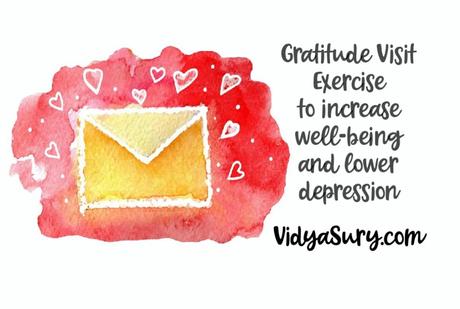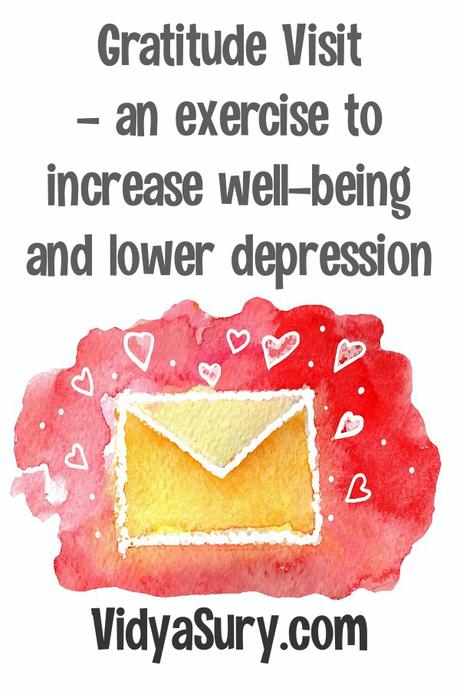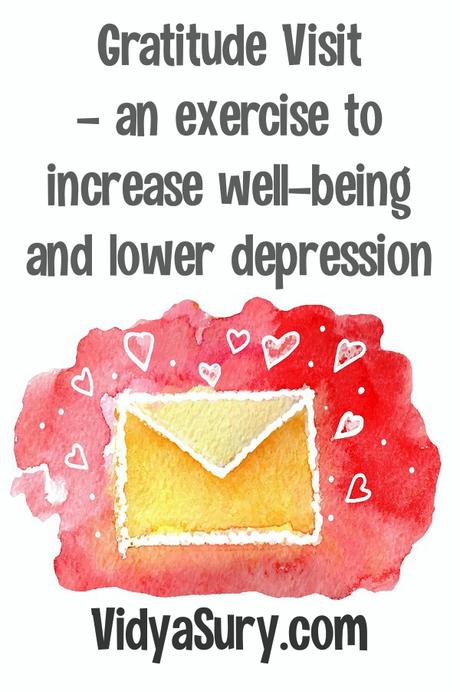
We are always looking for ways to increase our happiness. In his excellent book Flourish: A visionary new understanding of happiness and well-being Martin Seligman, Founding Father of Positive Psychology, offers an easy practice called the Gratitude Visit exercise to increase well-being and lower depression.
The Gratitude Visit, as a practice, seems rather simplistic but is based on decades of research.
How to practice the Gratitude Visit exercise
Here are the steps:
- Close your eyes
- Visualize the face of someone who did or said something to change your life for the better.
- This person must be alive, someone you did not properly thank, someone you can meet next week.
- Do you see the face?
What is the logic behind this exercise?
Gratitude makes life happier and infinitely more satisfying. And when we experience gratitude, we feel even better from the happy memory of a positive event in our life. By expressing this gratitude to others, we build stronger relationships with them.
However, we often tend to say our thank yous automatically and casually and it seems to carry no meaning.
In the Gratitude visit exercise, we have the chance to experience what it feels like to express our gratitude in an intentional, thoughtful manner.
So now that you have a face, write a letter of gratitude to this person and hand-deliver your note to this person.
The letter should be at least three hundred words. Be specific about what this person did for you, how it impacted your life. Let the person know what you are up to these days and make it a point to mention how you often remember what the person did for you. Go ahead and be as lyrical as you want. After you finish writing the testimonial, phone the person and say that you want to meet up/visit but don't say why. You want this exercise to be a fun surprise. When you do meet up, read out your letter.
So yes, you will feel slightly self-conscious about reading the letter, but you will definitely feel much happier and less depressed in less than a month, according to the author, Seligman.
Oh, we're not done yet.
There's a part 2 to this exercise. It's called the "what went well" exercise or the "three blessings" based on the author's research.
We all have a tendency to focus on what went wrong and not enough about what goes right in our lives. Sure, we must analyse the bad stuff so we can pull out valuable life lessons and avoid those mistakes in future.
But even so, people tend to continue spend more time wallowing in their misery than necessary. Worse, this focusing on the negative builds a platform for anxiety and depression.
How to avoid focusing on the negative?
One way to avoid this is to coach ourselves to focus on and cherish what went well.
By nature, we are tuned to being better at analyzing bad events than enjoying the good events. To overcome this, we must put in extra work to practice the skill of focusing on what went well.
Here's a short exercise to help with practicing this.
The three blessings exercise
In the coming week, every night, set aside ten minutes before bed time.
Write down three things that went well that day and why they went well.
Use a journal or an app on your phone-the point is to have a record of what you write.
The three things you list need not be major events. It can be as simple as your partner bringing you flowers or your friend getting a promotion. It just needs to be an important event.
Next to each event, describe why it happened. You partner brought you flowers because she is thoughtful and expressive and makes you feel loved. Your friend got a promotion because she's amazing at her job and inspires everyone with her talent. Something like that.
I know many of us have gratitude journals but writing about WHY the positive events in our lives happened is important. If it is difficult initially, stick with it-it will become easier. The author guarantees that we'll be addicted to the practice in less than six months while feeling less depressed and happier.
Will you try the Gratitude Visit exercise today? Whom will you thank and why?

♥
Wednesday Wisdom is a series with short bursts of easy-to-consume wisdom in the form of stories, quotes, anecdotes, reflections, easy meditation, thought-provoking questions and humor.
